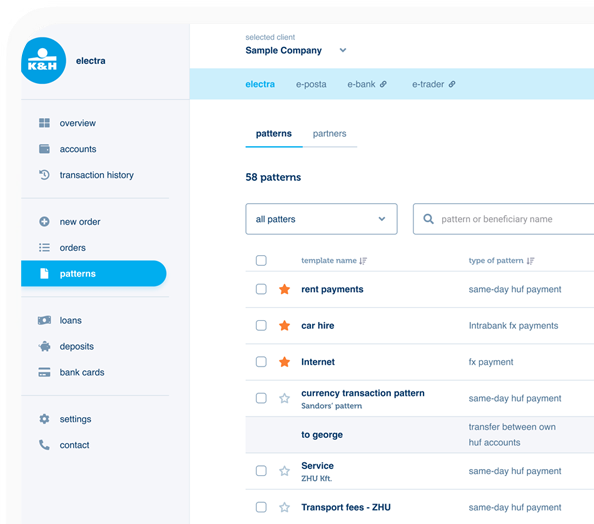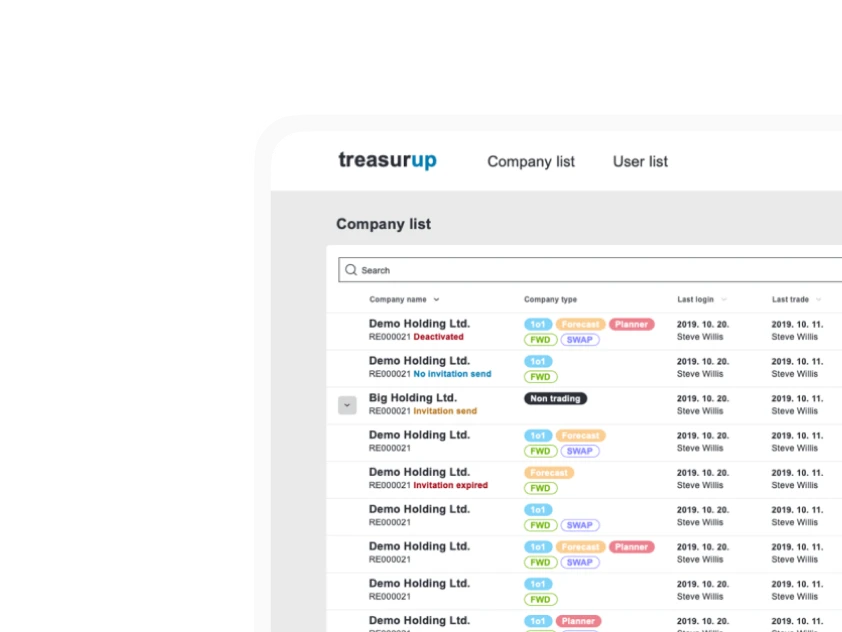Singapore – Invisible Fintech
Shadab Taiyabi expresses an interesting take on the future of Fintech, given that at the time he was President of the Singapore FinTech Association. When I ask about the direction of Fintech there, he points out that it doesn’t have to be just in the city state where he is based, or even the ASEAN region, but for the whole world. “The simple answer is that Fintech will become more invisible,” Shadab says, somewhat counter-intuitively. Meaning what exactly? “I would say the litmus test for the real availability of Fintech is that you literally don't have to think about whether it's Fintech or not, it's just so embedded in your day to day work. So embedded finance, as an example, right? If you're using the same app for your ride hailing, or for your food delivery, and if you get your financial services through that – because a Fintech has enabled embedded finance in it – that’s the kind of invisibility I’m talking about. You won't have to go to a separate app.”
So as users, we won’t be thinking, ‘I am now going to go to a Fintech for this next service?’ Shadab confirms this view: “You could just ask Google, ‘What would be the best portfolio recommendation for me to invest in for my child’s education in the next 10 years?’ You should be able to get that on the go rather than having to log in somewhere. That’s the ultimate objective, although for now the biggest benefit that Fintech puts on the table is to make it easy for financial services and products to be deployed to a much larger customer base, across jurisdictions, and across geographies.”
 Shadab Taiyabi
Shadab TaiyabiThe place of personalization
Ease of use has clearly been a hugely important factor in the growth of Fintech around the world, so how does Shadab evaluate the importance of UX in making ‘invisible’ Fintech accessible? “It’s a hygiene factor,” he responds. “There is no way you can have bad UX and survive nowadays. But the issue is what else does it bring to the table? How am I able to relate to the UX? Is it personalized for me? Does it really understand me? This is where Fintechs have to evolve.”
He is cautious about predicting how fundamental the shift to AI-powered solutions might be, given that AI is already in use across many Fintechs. He sees AI currently as more of ‘a flavor element’ than the main attraction. “If there is an ease of usage that Fintechs are able to bring to end customers, that’s where AI will have its biggest impact. It’s about a much better UX, a much more personalized product and service that will attract consumers more, and that will affect the business models of Fintechs as well. Generative AI is transforming delivery, and Fintechs are playing a very important role in using the emerging tech to provide more personalized solutions, for example in the insurance and wealth spaces.”
He cautions however, “The bigger question mark over AI is how to keep it ethical. So, there's a framework being worked on by MAS (The Monetary Authority of Singapore) leading Project MindForge, to look at the ethical use of AI and governance frameworks around it. These will not just be applicable to Fintechs, but financial services institutions as well.”
Sopnendu Mohanty, Chief Fintech Officer at MAS, has said, “As the financial industry continues to explore the potential of Generative AI technology, it is crucial that we develop a clear and concise framework for its responsible application. MindForge aims to address common challenges and catalyse AI-powered innovation in the financial industry, while ensuring that this technology is used in a responsible and sustainable manner.” Mr Mohanty’s name may be familiar, as a partner in Elevandi Japan – organizer of the Japan Fintech Festival – along with Takeshi Kito, and Pieter Franken.
 Singapore Fintech Association
Singapore Fintech AssociationCooperation is key
Shadab describes collaboration between the Singapore Association and other Fintech associations, including a Memorandum of Understanding signed with regional ASEAN organizations in 2022, and the formation of the Asia FinTech Alliance in November ‘23. The AFA was, ‘Jointly initiated and launched by prominent Fintech associations from ten countries and regions, comprising Hong Kong, Indonesia, Japan, Malaysia, Mongolia, Philippines, Singapore, South Korea, Taiwan, and Thailand. The aim is to foster further financial innovation with new technologies, enhance growth of the Fintech ecosystem, and facilitate the development of a supportive regulatory environment in Asia and beyond.’
Shadab adds, “The idea is to share information on the latest companies as well as the regulatory landscape. It becomes easier for one country’s companies to expand into other markets. We also do Mission Trips every year, bringing our members to meet with regulators, policymakers, and other Fintechs, banks, and FSIs, and to explore the potential for client engagement. That connectivity within the various jurisdictions and associations is helping push the growth of Fintech in the region. And globally, as well.”
 SFA and AFA meeting
SFA and AFA meetingNot talking but doing
Growing up in a loving family in Delhi, India, Neha Mehta and her sister Nidhi received an unusual gift from their father: the lack of a surname. “He had big dreams for us and said ‘I’m not going to give you my last name’. Even today my passport doesn’t have a last name and at immigration I’m sometimes asked if I’m like Madonna!” Nevertheless, she does for convenience sometimes use Mehta as a surname, not least for her influential book One Stop, Unlocking the power of SuperApps.
 Neha Mehta
Neha MehtaMistakes aren’t bad but not trying is bad
Neha says, “It gives me real fulfillment when I know that my work reaches poor and unbanked people, because I come from Delhi and have seen inequity firsthand, and that opportunities are not equal for men and women. Technology is agnostic and shouldn’t favor men or women, but somehow women are a lot more disadvantaged.” So how can technology be used to help women? This is the question at the core of Neha’s FemTech Partners, her Singapore-based Fintech specifically addressing issues facing women, mainly in Asian countries. Representing the point of view of 50% of society is really important, “I want to focus on realizing what’s wrong for women, and what the status quo is. I want to use current tools to solve problems, and work with the right stakeholders. Whether I’m successful every day or not doesn't matter, because what’s important is that my team and I keep trying. I don't think mistakes are bad, but not trying is bad.”
The sky’s the limit
It would be easy for Neha to claim the high ground for feminist issues, a champion of poor and oppressed women – which she is – but her tone is more nuanced than that. So how did a lawyer from Delhi move to Singapore, and why has that become home? “Singapore gave me endless opportunities which I never thought I would have. In Singapore I felt equal to men for the first time in my life. I felt safe for the first time, and I felt heard and seen. I felt that the sky's the limit. So whatever I've achieved is because I was lucky enough to be in Singapore, which runs on merit and is about what you bring to the table. You see people from all walks of life and it really helps grow your talent, and how much effort you put in to achieve your goals.”
OK, so Neha settled in Singapore, and founded FemTech Partners, right? No, not quite. 2017 saw her invited to undertake a Chevening Scholarship, a British government initiative supporting international students to take any master’s course in the UK. She retains connections with the country and is a lecturer in Fintech at the University of Nottingham, among many other academic appointments around the world including, notably Nanyang Technological University (NTU), Singapore.
With her scholarship over - and we are talking a very telescoped CV here – Neha was back in Singapore, at which point she got a call from the British High Commissioner, who wanted technical assistance with a £1.2 billion capacity building support and delivery portfolio of programmes to disperse over seven years. “They were looking for a Fintech Team Lead, so I met the High Commissioner, and after the meeting, before I had even reached home I got the call to say I’d been selected.”
Promoting long term solutions
An intensive two and a half years began during which time Neha roamed the ASEAN region, gaining huge experience in working with Central Banks, Regulators and other national agencies. Very importantly, she saw the needs of people on the ground. “I realized that I could use my legal skills, plus what I know about technology. I could bring these elements together to reach governments, and help grassroots communities to go the last mile.” Neha gives as an example a peer-to-peer lending framework through BSP, the Philippines Central Bank. The aims were to reach women and youth, with extensive research to figure out how to improve platforms making loans to financially disadvantaged people. It was a wake-up call for Neha as she saw how a financial system could be used to oppress disadvantaged women, but also how with the right policy frameworks and structure, real pain points could be addressed.
Putting all the pieces together
She gives another example of her work during this productive period, in helping people suffering from natural disasters. After some calamity, how do uninsured or under-insured people get money to rebuild their lives in the most efficient way, rather than it ‘taking forever’ as bureaucratic processes go at snailpace?
Neha and her team came up with practical solutions such as taking pictures from a drone to assess the severity of damage. After that, a quick phone call, and money transfers could be made from the insurance company to someone’s wallet, with enough funds to start repairing and rebuilding. It was a simple and direct fix. “Putting all the pieces together in terms of policy, bringing technology to help people, knowing what's happening in the market, you can deep dive and have real conversations to ask people What's wrong? How can we solve this? I realized that I had to put in the hours to understand how technology can really help people.”
Engaging with the impossible
A similar sense of can-do comes from Kelvin Tan, with one word in his vocabulary becoming very clear: It’s courage. Courage to step outside the norm of eleven years as Managing Director and Global Head at Standard Chartered Bank nexus – the bank’s BaaS offering – and set up his own operation, audax. The company name is derived from the Latin for courage. ‘audax is about courage. The courage to push frontiers, take on unconventional challenges and do what the crowd didn't think was possible.’ And yes, audax is always stylised all lower-case.
 Kelvin Tan
Kelvin TanBoth sides of the fence
Around January 2023 Kelvin had reached a point where the technology he and his team had been developing was in use in Standard Chartered, but he saw the opportunity to sell it to multiple banks around the world. Standard Chartered remains a majority shareholder in audax (and at the time of our interview the only shareholder) but the company is at the start of a fundraising round with five or six major investors. “Standard Chartered has taken a very liberal view with regards to our product roadmap, the industry we're in, and how we are going to market,” Kelvin remarks. “We do have quite a bit of latitude in terms of how we want to pursue the business models, quite separate from banking.”
The audax board is chaired by Alex Manson, the CEO of Standard Chartered Ventures, so there remains a close working relationship with Kelvin’s former employer. “Three years ago, I pushed for the spin-off but was told, ‘Look, you can't run the balance sheet business of Standard Chartered and be the CEO of a tech company. It's a conflict,’ which I agreed with. So I had to pick one role, and I picked being CEO of a tech company. What audax does is enable our customers – banks or financial institutions – to use the technology that we've built to run embedded finance, open banking, digital banking, SuperApp ecosystems – you name it. We are flexible from a business model standpoint depending on the strategy of the client.”
Growing customers
As well as Standard Chartered being a client, two other publicly-announced customers are Malaysia’s Maybank Islamic and Riyad Bank’s Jeel in Saudi Arabia. There could be up to ten customers in the near future, and while Kelvin says the original hypothesis of the company was to go for Tier Two and Tier Three banks, the way things are playing out is that audax is making its mark with significant regional players.
So how much does the product have to be adjusted for each new market? Kelvin says that the core product has a significantly sophisticated configuration layer around it, so when entering a new market such as the UAE, Egypt or Japan, external integrations into local data sources have to be configured. Different territories have different regulations around ID cards or the use of third-party data, so customization does need to be undertaken. Needless to say, an individual bank’s requirements also must be taken into account. But, “If a client is happy to launch a greenfield digital bank outside of its legacy stack, and all you need to do is run on the same license and the same credit risk appetite, then integration to reporting systems and integration to the credit risk engine is pretty much it.”
The original technology stack was built to support Standard Chartered’s embedded finance ambitions – which was Kelvin’s brainchild – and now the goal is to sell primarily to banks and non-bank financial institutions that want to run new digital business models. The market is huge and even within the target geographies of Asia and the Middle East there are some 5,000 to 10,000 banks and FIs that could potentially use audax services. However the company is keeping its feet on the ground, “Let's get to the first five, the first ten, the first twenty, the first thirty…”

A diversity of views
While Kelvin may be one for a courageous approach, he says – perhaps counterintuitively – that if your goal is to become the CEO of a major bank, you’ll need to embrace risk more readily than a middle manager. Among the 100+ audax team, he has made a point of ensuring there’s a diversity of views within core management, with more conservative individuals in risk operation and finance functions, and the more ‘aggressive’ members in sales and product. There’s an open no-blame culture to the company and currently the male-female split is roughly two-thirds to one-third, with both the Chief Operating Officer and Chief Financial Officer being women.
New features and functionalities
If it sounds like the audax product is now fully developed, Kelvin responds that even Facebook or Instagram always need work, and continuous development is the norm to ensure evolution. “What we have is a full banking stack solution that covers retail and large parts of SME. But obviously, given new automation – the ability to run compliance as code for example – that’s always something new to be put in place. All our clients get automated reports, and all our clients get automated alerts on any potential compliance issues. There are always new features and functionalities, such as automated bot testing of all workflows that allow clients to test all their workflows 24/7, 365 days a year. So if anything breaks, the bank knows about it before any customer actually goes on their journey.” While about 40% of audax staff are based in Singapore, with the company incorporated there, India and Vietnam are engineering hubs. There are also specialist cyber tech ops in Poland and Australia, where there is more progressive thinking in terms of digital banking stacks and solutions.
It’s about what AI could become
This leads to a question on AI and where it’s heading. Kelvin sees the technology as being great as a productivity enhancer for coding, and in his own case for research, documentation and presentation creation. So to some extent his view is similar to that of Shadab Taiyabi. However the buzz is about what AI could become. At present he doesn’t see that AI in itself generates much revenue and actually the money is currently being made by consultancies selling their AI services. “What AI has done is show the imagination of what is possible. Beyond productivity enhancements there’s the ability to create videos, to create a different world, virtually and far more efficiently. That’s become significantly interesting in terms of what future use cases could be.” He muses on the possibilities of semi-sentience coupled with the onset of quantum computing, but cautions that he’s not ‘sophisticated enough’ to predict anything.
Getting FemTech Partners rolling
From 2017 onwards has been something of a blizzard of activity for Neha Mehta as she worked in startups, and programs with the Austrian, German, UK and US governments. Along the way she said to herself, ‘If I don't pivot to Fintech, I'll miss this wave.’ She accepted Fintech legal work, because she wanted to hold on to this dream. Two startups went bust, but while working in another she was asked to speak publicly for the first time. Since then she has established a reputation as an inspiring presenter at conferences and meetups around the world.
In 2019 while working in Amsterdam she had the idea of making something concrete happen in the tech space for women. Within two days FemTech Partners was officially registered in Singapore, with the manifesto that, ‘We believe in promoting young women from different cultural backgrounds. We believe in providing an environment for women where new ideas and innovation can be nurtured. We specialize in Fintech, financial inclusion, and promoting women in the finance industry. We strive to mentor young female talent and aim to work closely with development agencies.’ By 2019 FemTech Partners was building partnerships in the right ecosystems to launch financial and digital products, along with pro-bono mentoring for women.
What started with individuals in terms of inclusion has now spread to whole communities of migrants and other disadvantaged populations. FemTech Partners operates in the middle of a complex mix of forces, from high level policy making, through to practical on-the-ground technology applications. The company doesn't have any technology capability itself and therefore never pushes a particular solution. “It's an advisory firm,” Neha says. “We join hands with communities and roll out solutions. Sometimes they work, sometimes they don't, but when they do work there’s a ripple effect and you really see things happening!”
Real world stickiness
One example is a Bangladesh project to help women receive weather forecasts over their phones. Why? Because these women are crab farmers and fishers, and knowing the upcoming weather helps them plan how they will market and price their produce. She also mentions BCash, used by migrant workers to send money to their families in the Philippines, along with similar channels for Bangladeshis in Singapore. As soon as a channel is available, there is the opportunity to enlarge the ecosystem to include services such as insurance. Adaptation does take a while however, with an example being Vodafone's M-PAiSA wallet used in Fiji. It was well-used as a means of accessing wages, but not much for anything else. “There was no stickiness,” Neha explains. “People would withdraw their money, and then do nothing until the next month.” One reason people withdrew money was to then spend hours queuing at school gates to hand over cash for their children’s education. Every month, time was taken off work to stand on line. Using M-PAiSA to settle school fees electronically was a no-brainer, but it took time and effort to convince users.
Growth and guardrails
Cooperation between the Monetary Authority of Singapore and the Fintech Association suggests a different landscape to many other countries, where Fintech was initially treated with suspicion, and often hostility by regulators. Shadab Taiyabi says that from the start there was greater openness in Singapore. The regulator was interested in supporting the fledgling Fintech organization, rather than putting up barriers. He adds that MAS had to strike a balance between the interests of the Financial Services Institutions and the ‘new kids on the block’, ensuring protections from the broader consumer angle. It was a balance between, “Growth versus guardrails.” However, “At no point was there a lack of trust. There has been strong support and collaboration with the regulator and the Fintech community through all these years. MAS has done a good job of balancing the interests and benefits of all the stakeholders involved.”
Brand Singapore
Stick a Swiss flag on a product or service, and it immediately conveys ideas of stability, reliability, and quality. Is there something similar going on with ‘Brand Singapore’? Shadab agrees that there is huge value in how Singapore is perceived, and mentions ever-increasing international participation in the Singapore Fintech Festival year-on-year. It’s billed as the largest Fintech Festival in the world, with global attendees from governments, major companies and startups. “From participation in the festival people definitely see the value of Singapore,” Shadab says. “Singapore Fintech as a term was coined somewhere back in 2015 with the establishment of the FinTech Innovation Group, at MAS, followed by the formation of the Singapore Fintech Association in 2016. There were already companies in the Fintech space, but at the time it was less than 100, with about $20 US million of investment in them. There was a lot of effort from the regulator, the policymakers, the government agencies, working hand in hand with the innovation community of founders and entrepreneurs in developing the right level of guardrails, while evolving the regulatory landscape.”
It sounds like it was government bodies which were pushing for the growth of Fintech, but Shadab is quick to correct that impression. He says that the tenacity and ambitions of the entrepreneurs were the most crucial deciding factors in the ballooning growth of the sector. Another factor for growth was Brand Singapore’s geographical position as a hub for trade long before Fintech. “Singapore has always been a hub for something.”
One to watch
So how about Fintechs that are worth watching? Kelvin Leung immediately namechecks WeBank in China, which he points out is the world’s largest bank with 400 million customers. The bank itself is ‘invisible’ behind the WeChat ecosystem, and a customer can take out a loan without ever realising that they are engaging with WeBank – unless they are carefully reading the T&Cs. “It’s very interesting,” he says. “Because that model becomes significant from both a scale acquisition and balance sheet standpoint, but also from the monetization of data standpoint. More and more banks should start looking in this direction, whether or not they're impeded by Legacy processes and systems and people. I haven't seen anyone who's ready to make that quantum leap, other than some of the Neo banks. From a legacy bank standpoint, I am somewhat biased, but any customer who decides to work with audax certainly should be worth looking at, because in making the choice to work with us, they’ll need a significant appetite for quantum leaps and change.”
Encouraging up-and-coming Singaporeans
Which seems like we’re back to audacity and courage. Kelvin is also active in encouraging young Singaporeans to engage with the global economy. He remarks that Singaporeans are generally very good executors and trusted middle managers, but that as yet few are fully equipped to navigate the upper echelons. Which suggests that he may be somewhat atypical as a Singaporean. He considers his western education (in Chicago USA, and Perth Australia) and his tendency to speak out, with a ‘devil may care’ attitude. He’s a big believer in Confucian values, and the importance of the family, so somewhat to my surprise he doesn’t test his courage with – for example – extreme sports. Rather, ‘comatose’ downtime on the sofa is more the Kelvin Tan style.
So when he’s coaching younger up-and-coming Singaporeans, what’s his advice? “Go for it and don’t worry. But understand what your risks are. Understand that you will never be perfect. If you're waiting for the perfect moment then you will never do it. So you need to understand where your risk appetite is and how it's mitigated, what the balancing act is, and what you're comfortable with individually.”
Which perhaps sets the tone for the future of audax too? Kelvin prefers to focus on the immediate six months ahead. “My fundamental driver for doing anything is not so much money - that's important, but not primary. But the more somebody tells me that something is difficult, the more likely I am to try it. When I came up with the idea for audax, I pitched it to a whole bunch of people who I consider friends, and everyone told me it was impossible!”
OK, but looking beyond that immediate six month window? “Well, my long term vision – and not everyone believes it can be done or believes that it should be done – is for audax to become a large global conglomerate.”
You heard it here.
The rise of the SuperApps
As well as her globe-trotting engagements as a speaker at conferences, you may well have heard of Neha Mehta through One Stop published by Penguin Books. It chronicles how ‘SuperApps’ or ‘everything apps’ can be used to bring efficiency to populations, with features such as alternate credit scoring, giving ‘ease and joy’ to people, many of whom are not served by traditional banks. “We need banking, not banks, and SuperApps are the alternative to that,” Neha says. Her main thesis is that while ‘Big Tech’ in the form of Apple, Google, Microsoft and the many companies they have swallowed seems all-conquering, in fact it’s lagging behind developments in the East. WeChat, Paytm, PhonePe, Kakao, Zalo, KoinWorks, GoTo and Grab are used by billions of people, offering them one stop solutions and access to huge ecosystems. These cover everything from ordering food or a taxi, messaging and calls, entertainment, through to payments, savings, investment, insurance, and much more.
So will SuperApps from the East penetrate Western markets, or can Fintechs in the West start applying lessons from them? It’s an intriguing prospect and Neha describes ‘The SuperApp Revolution’ that is already happening as a huge opportunity for innovation and disruption. “I'm talking about the power of technology to help poor people. The multilaterals, the World Bank, the UN, IDB, Asia Development Bank, all talk about it because they've done it, but not many individuals or consulting firms take pride in doing the work. So I talk about the use cases, I talk about resilience, I talk about how we can enter rooms we never thought we could enter.”
Focusing on the success stories
“When I look back, I feel that everything has connected really well for me. The teaching, the book, my work, the speaking, everything is interconnected. I want to make sure I pay it forward, because a lot of people have opened doors for me, and had a lot of faith in me.” And with the creation of FemTech Partners, would she say she is an activist for gender issues? Perhaps surprisingly, she responds, “I've never thought of myself that way. I feel that the more you talk about the problem, the more you become the problem. So I focus on how we celebrate the success stories, and how we harness technology for the right reasons.”
Weighing the gender balance
On the subject of gender balance in Singapore’s Fintech scene, Shadab Taiyabi says, “It’s not the most balanced at the moment,” but the Association is aware of this and is trying to address issues. ‘Taking Stock & Looking Ahead: Gender Diversity in Southeast Asia’s FinTech Landscape’ was a report commissioned by the Association which graphically demonstrates room for future improvement. The Association reports on gender balance, helping mid-lifers to reskill, and working with Institutes of Higher Learning. It is also involved in grassroots projects, such as organizing hackathons. Then there’s the Association’s participation in Fintech 101, a free course for younger students under the auspices of the Singapore Fintech Youth Chapter. This may even expand into secondary school programs, where the principle of creating a problem statement, and coming up with a solution and proof of concept can be applied.
 Youth event at SFA’s Robinson Road headquarters
Youth event at SFA’s Robinson Road headquartersThe Association is dedicated to its stated aims of, ‘Advocate. Collaborate. Connect.’ It numbers 8,000 industry professionals as members, with around 800 corporate members. There’s also a host of authoritative publications to draw on, and a rich seam of past and future events. If this is all ‘Invisible Fintech’, then the vibrant Singapore FinTech Association actually seems very visible indeed. Or as Neha Mehta says, “Sometimes we just need to empower people so that they can realize what great potential they have for themselves. It's not about running the whole course all the time. Give them enough tools and people are capable of figuring out the next thing, and then the next.”









